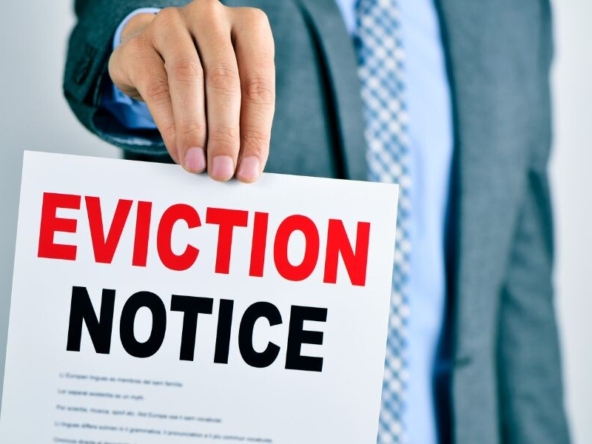There are many fees and repairs that landlords often overlook or underestimate. Maintenance costs such as plumbing or roof repairs can add up quickly if they’re not maintained regularly.
If it has been a while since your last inspection, beware of any hefty bills down the line. Utility bills like water and electricity could also pose an unexpected financial burden for owners who don’t carefully track these charges each month. Talk to other property managers in your area for advice about which hidden expenses will crop up most frequently.
Make sure you have some extra money on hand, just in case!
Property Taxes and Insurance
Property taxes and insurance are two crucial expenses that landlords must not overlook, as they contribute significantly to the overall cost of owning rental properties. Property tax rates vary by location, but you can typically expect them to be based on a percentage of the property’s assessed value.
As an investor or landlord, it’s vital for you to understand your local taxation system and keep track of any fluctuations in tax rates. Failure to pay these taxes may lead to penalties or even liens against your property. Insurance premiums for investment properties will differ from those associated with primary residences since there are additional risks inherent in renting out homes.
Landlord insurance policies often cover a variety of items. Building coverage protects against structural damage; liability protection covers legal fees if a tenant gets hurt, loss-of-rent reimbursement compensates if tenants have to leave due to events like natural disasters, vandalism damages repair costs apply for short-term occupancies like Airbnb rentals, and other situations that do not fit under traditional home insurance policies. These features ensure that landlords’ interests are fully protected.
Calculating potential returns from newly acquired real estate investments requires taking both of the above-mentioned factors into consideration. Operating expense forecasts are an important aspect of forecasting profitability over time. Establishing realistic goals before purchasing new assets is essential for ensuring optimal results within given market contexts.
Maintenance and Repairs
As a landlord, you must proactively schedule routine maintenance to avoid unexpected repair costs. This includes inspecting for potential problems, such as water leaks or electrical issues, and fixing them before they escalate. Don’t forget about the exterior of your property. Check for damage caused by weather, pests, or general wear and tear.
Regularly maintaining essential systems like plumbing, heating, and cooling is critical to providing tenants with uninterrupted service while prolonging equipment lifespan. Engage reliable professionals to perform these services at intervals recommended by manufacturers or authorities. Additionally, anticipate appliance replacement needs as they age out.
This allows you to set aside funds gradually rather than facing sudden high expenses when replacing multiple units simultaneously. Investing in energy-efficient appliances can result in reduced utility bills over time. Remember that tenant satisfaction plays a significant role in reducing vacancy rates; thus, addressing minor concerns promptly contributes greatly towards this goal too!
It’s wise to maintain an emergency fund earmarked exclusively for unforeseen repairs since neglect could potentially lead not only to higher costs later but also legal complications if tenants’ rights are violated due to unaddressed hazards within the premises. Ensure clear communication channels exist between yourself (or the appointed representative) so that occupants feel comfortable reporting any arising concerns without hesitation.
Utility Costs
Be mindful of fluctuating utility costs that can impact your budget as a landlord. Unpredictable weather conditions, such as extreme heat or cold spells, might lead to increased energy consumption for heating and cooling purposes in empty properties waiting to be sold. To mitigate these expenses, introduce energy-efficient measures like insulating walls or installing double-glazed windows.
In addition, consider shopping around for the best utility plans offered by various providers. You could benefit from reduced rates on electricity or gas usage during off-peak periods when your property is vacant between tenancies, further minimizing the financial burdens associated with void periods. Another potential hidden cost you should take into account involves meeting safety regulations concerning utilities in rental properties.
Regularly maintain and inspect electrical wiring systems and appliances to comply with legal obligations while keeping tenants safe from hazards posed by faulty equipment. This will also help prevent costly repairs resulting from undetected issues. As a proactive measure against unexpected increases in water bills due to leaks or overuse within the property (both indoors and outdoors), install low-flow showerheads, faucet aerators, dual-flush toilets, and rainwater harvesting tanks where possible.
And don’t forget about landscaping! Well-planned gardens using drought-tolerant plants often require less irrigation, which helps save not only resources but money too! By being vigilant regarding these aspects of utility costs management when it comes to maintaining an investment property, especially those lying vacant, you’ll have greater control over unforeseen expenses that threaten profits earned through real estate ventures.
Late Payment Fees
In addition to the common expenses landlords encounter, late payment fees are another often-overlooked aspect. These fees come into play when tenants fail to make their rent payments in a timely manner. While implementing and enforcing these penalties might seem unnecessary or harsh, they serve as an essential tool for maintaining consistent cash flow and ensuring your rental business thrives.
A well-defined late fee policy should address not only the amount charged but also specify grace periods permitted before imposing such charges on tardy renters. Establishing clear expectations can help mitigate misunderstandings regarding due dates while encouraging punctual rent submissions from occupants of your property. Online payment options offer both convenience and enhanced reliability in securing prompt transactions.
By keeping aware of any hidden expenditures related to managing properties effectively (including accounting wisely for potential income losses stemming from delayed or unpaid rents), real estate investors position themselves more favorably within today’s competitive market conditions.
Legal Requirements for Compliance
When leasing commercial office space, it’s crucial to ensure the property complies with local laws and regulations. This applies not only to zoning but also building codes, safety requirements, environmental standards, and accessibility guidelines for individuals with disabilities (e.g., ADA compliance), among others.
Begin by researching relevant legal information on government websites or contacting municipal offices directly. Consult a knowledgeable attorney who specializes in real estate law if necessary, particularly for complex situations or large-scale operations. It’s essential that you verify your potential new workspace meets all applicable criteria before signing any lease agreement.
If improvements are required for compliance purposes post-move-in date of occupancy, such as installing fire sprinklers or upgrading HVAC systems, determine whether these costs will be covered by the landlord, hence avoiding unexpected surprises down the line.
Furthermore, it is important to review each clause within contract documentation thoroughly. This includes provisions related specifically to regulatory matters like penalties for non-compliance and measures needed to be addressed during the tenancy.
As a landlord, it’s essential to take into account all the hidden costs associated with owning a rental property. While there are many major expenses, such as mortgage and insurance, you should also factor in factors like repairs, maintenance fees, and potential vacancy periods. Local Dwelling can guide landlords through these unexpected costs and provide them with expert advice on how best to manage their properties for profitability.
Save yourself money by carefully analyzing your current situation before making any decisions.





